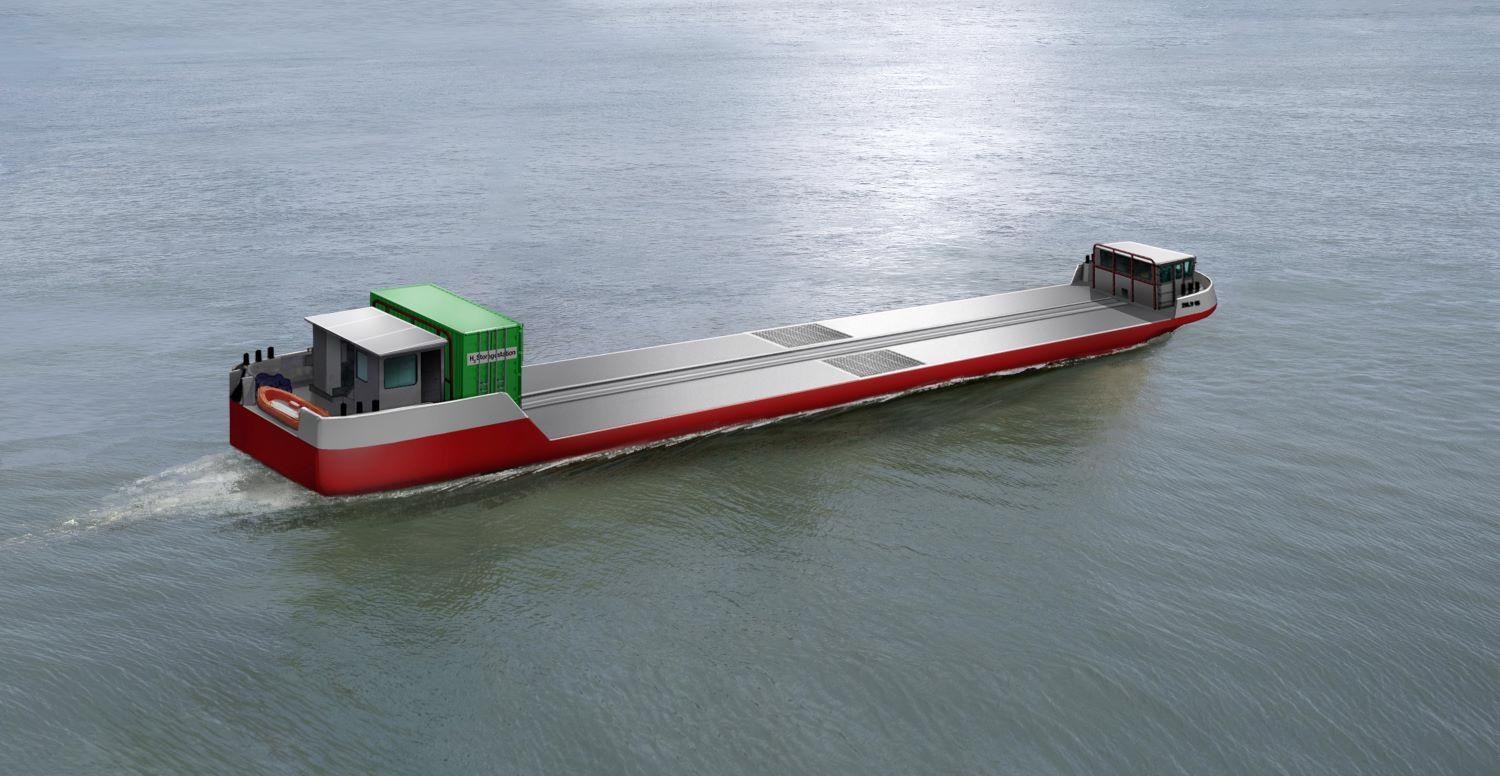Apr 7 2021
The European innovation project Flagships will deploy the world’s first commercial cargo transport vessel operating on hydrogen, plying the river Seine in Paris. Commercial operations are set to commence in 2021.
 Zulu hydrogen. Image Credit: VTT Technical Research Centre of Finland
Zulu hydrogen. Image Credit: VTT Technical Research Centre of Finland
The hydrogen cargo transport vessel will be owned by French inland shipowner Compagnie Fluvial de Transport (CFT), a subsidiary of the Sogestran Group. The company is currently developing a new business for urban distribution with transport vessels in the Paris area.
“The demand for more sustainable technologies in inland waterway transport is on the rise. As part of the Flagships project, we are happy to be leading the way on reducing emissions from transport and demonstrating the superior features of hydrogen fuel cells in waterborne applications,” says Matthieu Blanc, director of CFT.
“Green and sustainable shipping is a prerequisite for reaching national and international emission reduction targets. Ships powered by renewable hydrogen will make a substantial contribution to reducing emissions from shipping and improving air quality in cities and other densely populated areas,” says Flagships Project Coordinator Jyrki Mikkola from VTT Technical Research Centre of Finland.
Hydrogen gaining ground
Both the EU and the shipping industry see hydrogen as a key contributor in the efforts to mitigate climate change. The Flagships project was awarded EUR 5 million of funding in 2018 from the EU’s Research and Innovation programme Horizon 2020, under the Fuel Cells and Hydrogen Joint Undertaking (FCH JU), to deploy two hydrogen vessels in France and Norway. The project’s initial plan was to deploy a hydrogen push-boat in the Lyon area, but as the broader potential for hydrogen in cargo transport emerged, the demo pusher was changed to an inland cargo vessel. The new vessel will be tasked with moving goods on pallets and in containers along the river Seine.
The shift in focus is based on Sogestran Group’s experience gained in Belgium, where Blue Line Logistics (BLL), another subsidiary of the Sogestran Group, operates three cargo vessels sailing under the concept name “Zulu”. One Zulu vessel has also been put into operation in Paris, and an additional two Zulu ships are currently under construction for the same market. The Flagships project will install a hydrogen power generation system on one of the newbuilds, scheduled for delivery in September 2021. Blue Line Logistics plans to have the ship operating on hydrogen before the end of 2021.
“As we move through the energy transition, hydrogen technologies are gaining traction in the maritime sector. Flagships is a very exciting project for us, since it is leading the way to demonstrate how vessels operating on green hydrogen can decarbonise urban rivers. By translating technological innovations into commercial operations we can make zero-emissions inland vessels a reality in every European city!,” says Bart Biebuyck, Executive Director at FCH JU.
Pieces in the zero-emission puzzle
The vessel will operate on compressed hydrogen produced from electrolysis, enabling not only zero-emission operations, but also creating a solid base for more local zero-emission transport, both at sea and on land. The power generation system for Zulu will be supplied by ABB Marine & Ports, with fuel cells from Ballard. LMG Marin is responsible for detail design drawings, with hydrogen provided by suppliers in the Paris region.
The Flagships consortium includes 12 European partners, with two shipowners, Norled (NO) and CFT (FR) assisted by its support company Sogestion (FR) and Sogestran (FR); the maritime OEM and integrator companies ABB Marine & Ports (FI) and Westcon Power & Automation (NO); and ship design company LMG Marin (NO & FR). World-leading fuel cell technology is provided by Ballard Europe (DK), with vessel energy monitoring and management by Pers-EE (FR). Management and dissemination activities are provided by VTT (FI) and NCE Maritime CleanTech (NO), respectively.
The Flagships project has received funding from the Fuel Cells and Hydrogen 2 Joint Undertaking under Grant Agreement No 826215. This Joint Undertaking receives support from the European Union’s Horizon 2020 Research and Innovation program, Hydrogen Europe and Hydrogen Europe Research.
About the Fuel Cells and Hydrogen Joint Undertaking
The Fuel Cells and Hydrogen Joint Undertaking (FCH JU) is a Public Private Partnership in which the European industry, research, academia (represented by Hydrogen Europe and Hydrogen Europe Research) and the EU (represented by the European Commission) work together to accelerate the deployment of fuel cell and hydrogen technologies. The FCH JU supports a wide range of projects, which help to put the EU at the forefront of research and innovation, bring the benefits of the technology to the citizens and enhance industry competitiveness.